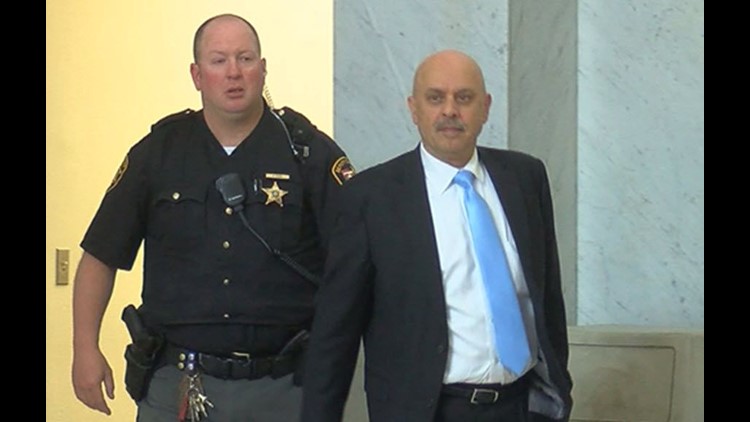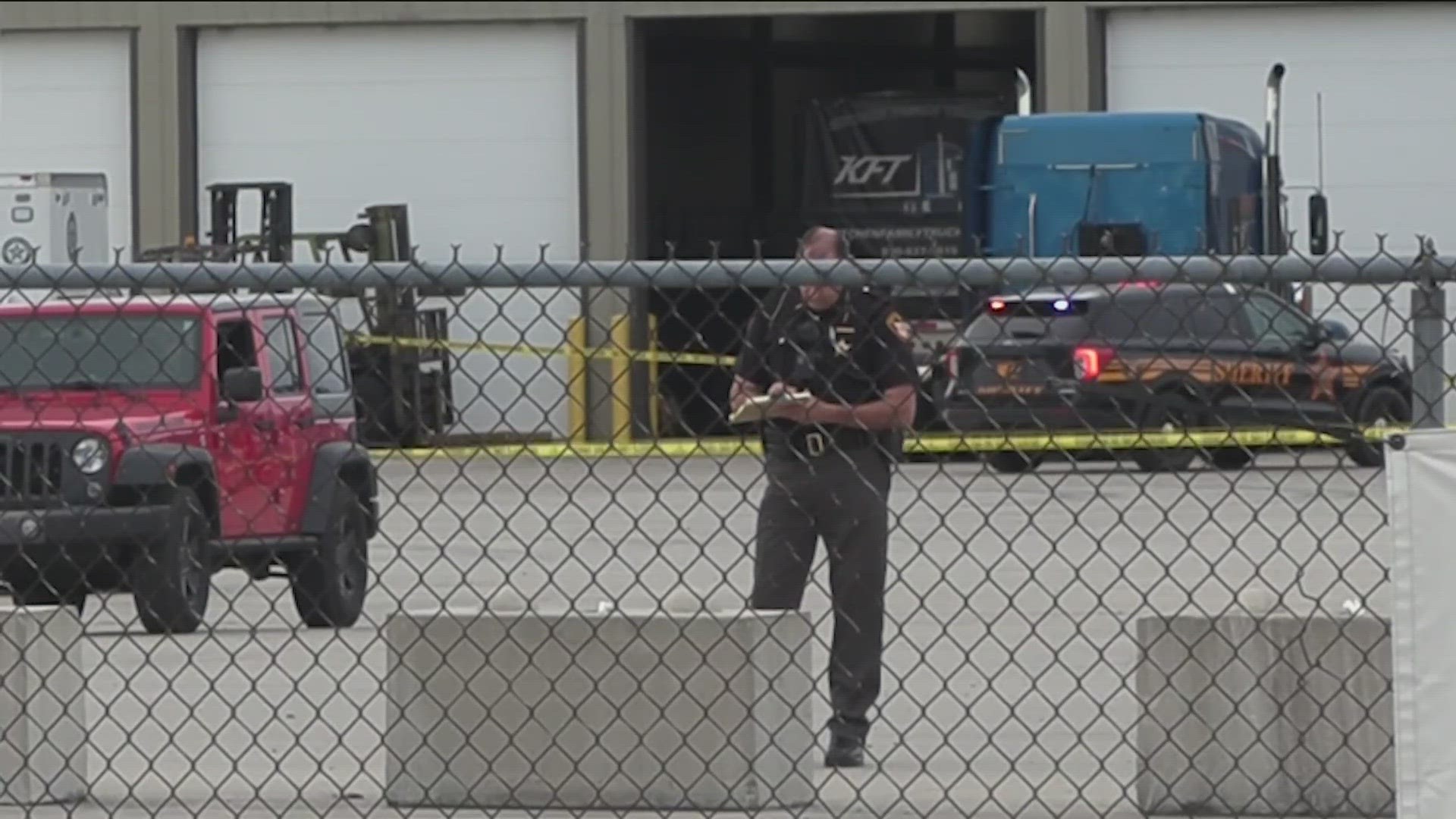
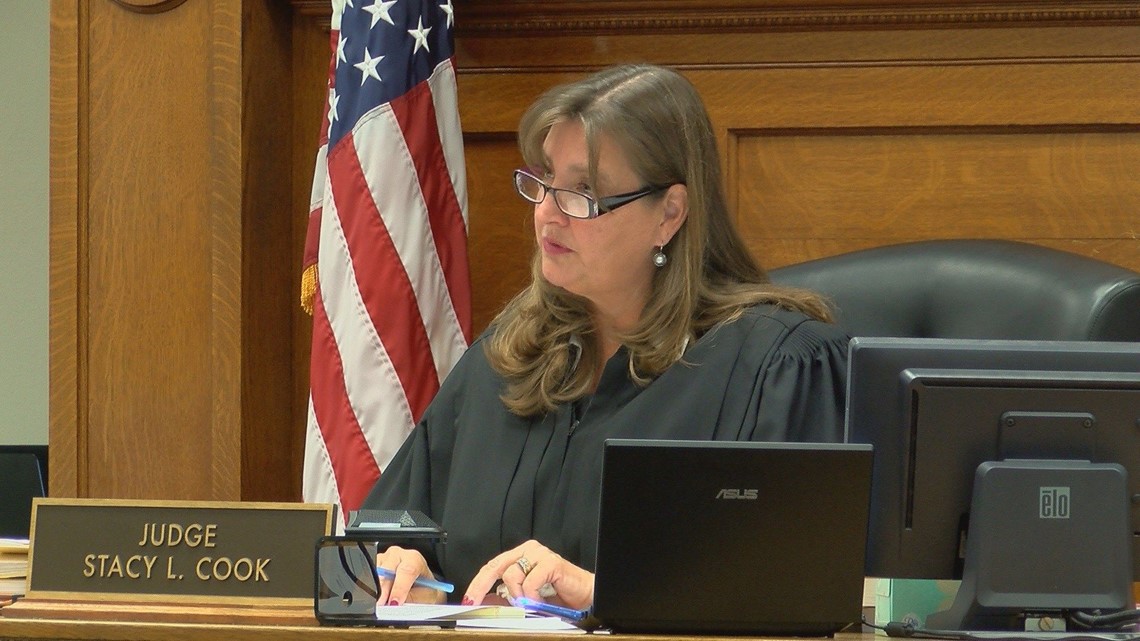

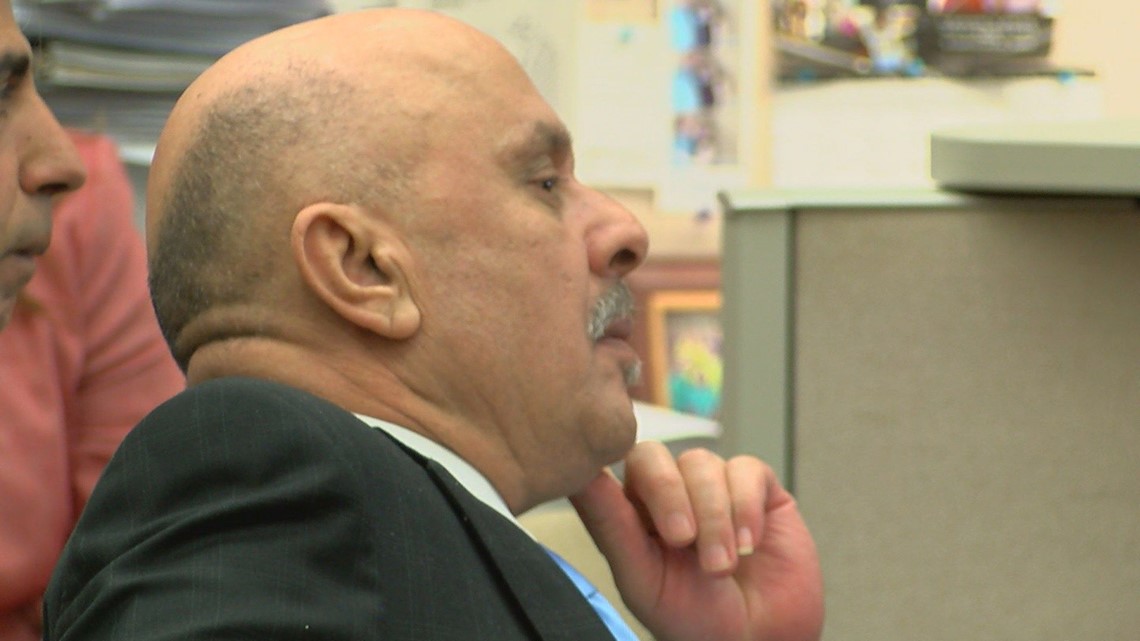

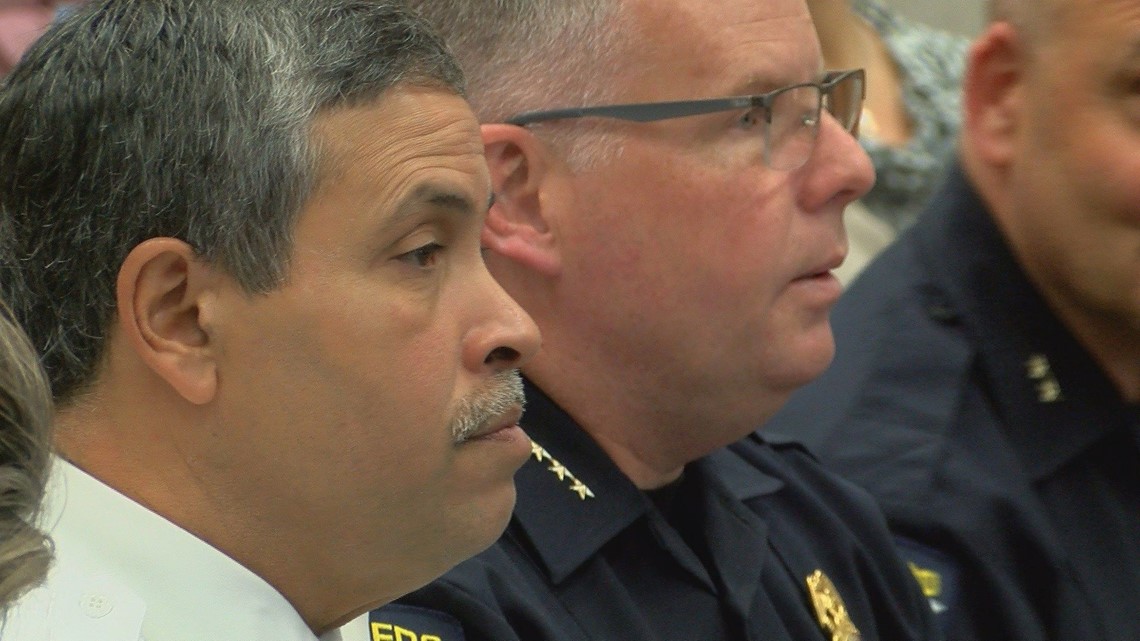
TOLEDO, OH (WTOL) - The man accused of setting a 2014 fire that killed Toledo firefighters Stephen Machcinski and Jamie Dickman was sentenced to 20 years in prison Thursday morning.
Ray Abou Arab was found guilty of involuntary manslaughter and aggravated arson following an unexpected day in court.
Lucas County Judge Stacy Cook declared a mistrial around 10 a.m. Thursday after a misstep in testimony Wednesday afternoon.
"The court finds that I have no other legal remedy then to declare a mistrial in the case of Ray Abou Arab," Judge Cook said, officially putting an end to a trial that took three years to build and three weeks to end in a mistrial.
On Thursday, Abou Arab took an Alford plea to two counts of involuntary manslaughter and two counts of aggravated arson for the deaths - lesser charges than what he was facing before the mistrial.
An Alford plea is considered a guilty plea in court, however the defendant maintains their innocence. The minimum time Abou Arab could have served was three years under the deal; the maximum was 44 years.
He will remain in prison until he is in his eighties.
Local defense attorney Jerry Phillips believes that Abou Arab and his attorneys likely realized so much evidence was presented against him that he could have been found guilty of more serious charges if there was a second trial.
"I think he came to the realization that, 'I don't wanna take a chance and go through this again. Here's a possibility that I could maybe someday get out if I can survive 20 years in prison.' So there's some benefit to both sides to resolve it in this manner," Phillips said. "I think he caught a break and it's also, I think you can look at it, he had some hope or he does have some hope for the future that he may get out of prison."
Phillips also said that Abou Arab's 20-year sentence is mandatory, meaning he has no chance for parole and will serve the full sentence. He will also not be allowed to appeal his sentence. However, he may get credit for time served and could get an eight percent reduction for good behavior.
The unexpected moment that halted proceedings Wednesday afternoon came while a Toledo police detective was on stand.
When questioned by the defense, Det. Sgt, Keefe Snyder revealed the results of Abou Arab's "lie-detector" test to the jury.
"So how did you know [Abou Arab] lied to police," the defense asked.
Det. Sgt. Snyder responded, "Because I did have knowledge that he did fail the polygraph."
Polygraph tests are generally not admissible in court. As a result, Judge Cook asked the jury to leave the courtroom before releasing them for the day around 5:30 p.m.
After a night to consider options, Judge Cook felt there was no way to guarantee Abou Arab would receive a fair trial, thus forcing her to declare a mistrial.
The misstep happened on one of the most emotional days of the trial. Graphic autopsy pictures that showed the severe burns across the firefighters' bodies were presented with a detailed explanation about their deaths.
Judge Cook gave an emotional testimony of her own before she dealt Abou Arab his sentence.
"I saw the absolute commitment this band of brothers has for each other, including a father who was a police officer on the scene, who looked his rookie firefighting son in the face and telling him, knowing the inferno he was about to enter, 'you have to go in and get your guys'. These men and women fought with every last ounce of strength to try to revive these men. Their hearts and souls were breaking with each chest compression, with each attempt to find a way to breathe for their friends," Judge Cook said through tears.
She then said that she gave Abou Arab "too much credit for being human."
"I watched to see if I could an ounce of remorse or sadness for the events you set into motion," Judge Cook said. "I saw none."
The family had a chance to deliver their statements about the trial after the jury had been informed of the Judge Cook's ruling.
For some like Libby Cheney, sister of Jamie Dickman, it was a relief that the trial is finally over.
"We have fought for three and a half years for closure," Cheney said. "This trial may not have ended as the families wanted it to, but at least it's ending."
For others, the anger and pain is still fresh in their minds.
"We lost all of our future time with [Machcinski]. No more Christmases, no more birthdays, none of that. What happened to our family is indescribable. The outcome of this case is that nobody wins. Everybody loses. Both families lose, the fire department loses, and most of all, Steve and Jamie lose. They were taken away from us, but their lives were taken away from them. We are unable to feel any forgiveness for this. We cannot forgive," said Rich Machcinski, brother of Steve Machcinski.
Fire Chief Luis Santiago also spoke in response to the mistrial and sentencing. His sentiment mirrored that of many others that the result was not ideal, but acceptable.
Like Judge Cook, Chief Santiago took offense to Abou Arab's lack of remorse shown during the trial.
"It was not just not showing remorse," Chief Santiago said, "he showed some kind of sign of victory in his eyes. Yea it's offensive. But you know what, He's gonna have a day when he's judged again and I'm not sure he's going to fare as well. That's the way I think about it."
The "sign of victory" Chief Santiago referred to was an apparent thumbs up Abou Arab gave while leaving the courtroom.
Chief Santiago said there was discussion of a new trial, but after three years, it was time to put the case to rest.
"It's just not how successful we could be through another trial, but the burden of it," Chief Santiago said. "I was there every day in court, and I watched the testimony of our firefighters. I'm not sure I want to put them through that again."
Cheney echoes those sentiments.
"We had a lot of input. They were looking at us to decide because ultimately they didn't want to put their people through it but they didn't want to put us through it as well," said Cheney.
Chief Santiago also says the department will not pass judgment on Det. Sgt. Snyder for the outcome of the trial.
Chief George Kral said Det. Sgt. Snyder will not face reprimand or anything other punishment for his mistake.
As this difficult trial comes to a close, Judge Cook's testimony shows that cases like these don't get easier with time.
"As a judge, when you know the allegations in a case, you can surmise the type of facts you with hear. But no one can prepare you for hearing the facts in a case like this," said Judge Cook. "No punishment I give you brings back Jamie Dickman or Private Steve Machcinski, and nothing can match their suffering."


